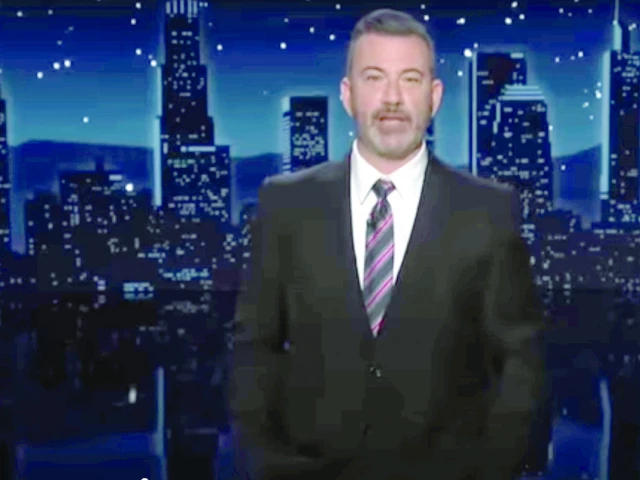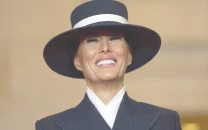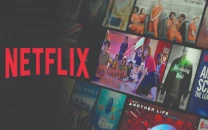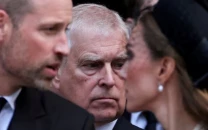Kimmel's return stirs fresh storm
Affiliates revolt even as Disney restores late-night show

Jimmy Kimmel returned to late-night television, six days after Disney suspended his show over remarks about the murder of Charlie Kirk but the comeback reopened a fierce battle over media freedom, political pressure, and the corporate power in shaping what Americans can watch.
The comedian took the stage on Tuesday with a tearful defence of satire and a warning about growing threats to free expression. "It was never my intention to make light of the murder of a young man. I don't think there's anything funny about it," Kimmel told his audience.
"Nor was it my intention to blame any specific group for the actions of what was obviously a deeply disturbed individual — that was really the opposite of the point I was trying to make." he added, holding back emotion.
Kirk, a conservative commentator and close ally of President Donald Trump, was shot dead while speaking at Utah Valley University. A 22-year-old technical school student was later charged with murder, though investigators have not established a clear motive.
Kimmel used his opening monologue on September 15 to suggest that Trump's supporters were desperate to portray Kirk's alleged assassin "as anything other than one of them," accusing them of trying to "score political points" from the killing.
The Trump administration and conservative commentators condemned the comedian, and Federal Communications Commission (FCC) chair Brendan Carr warned local broadcasters that carrying the show could expose them to fines or even revocation of their broadcast licences.
Within hours, Disney, ABC's parent company, pulled the programme, 'Jimmy Kimmel Live!', describing the comments as "ill-timed and thus insensitive." Now, Kimmel's apology marks the end of a turbulent week.
The suspension drew criticism not only from Trump's allies but also from free-speech advocates, who argued that corporate and political pressure was being weaponised against media voices.
Yet Disney itself came under heavy fire from viewers cancelling Disney+ subscriptions in protest, with online searches for "how to cancel Disney+" spiking to a one-year high.
By the weekend, Disney Entertainment co-chair Dana Walden and CEO Bob Iger had met with Kimmel and decided to reinstate the show. Sources told Reuters the decision reflected business calculations more than political ones: the backlash from subscribers outweighed the risk of confrontation with regulators.
Even so, the reinstatement did not restore unity. Hours after Disney announced Kimmel's comeback, two of the nation's largest station groups - Nexstar Media Group and Sinclair Broadcast Group - said they would not resume airing Jimmy Kimmel Live! on their ABC affiliates.
Together, they control or partner with more than 70 ABC stations, covering nearly a quarter of American households. Nexstar declared it would "continue to pre-empt the show indefinitely," while Sinclair said it would substitute local news programming "for the foreseeable future."
That affiliate revolt has left Disney in a precarious position. Kimmel may be back on the network's national feed and its streaming services, but millions of viewers in markets from Washington, DC to Salt Lake City will see replacement shows instead.
Trump, for his part, has shown no signs of letting the controversy fade. Hours before Kimmel's Tuesday return, he took to Truth Social to attack both the comedian and ABC.
"Why would they want someone back who does so poorly, who's not funny, and who puts the Network in jeopardy by playing 99% positive Democrat GARBAGE," Trump wrote.
"He is yet another arm of the DNC [Democratic National Committee] and, to the best of my knowledge, that would be a major illegal Campaign Contribution. I think we're going to test ABC out on this."
The comments underscored a broader campaign. Since returning to the White House in January, Trump has used his office and the courts to target unflattering speech, often labelling it defamatory or false.
He has repeatedly threatened to rescind broadcast licences for networks critical of him - licences overseen by the FCC, a regulatory body now under heightened scrutiny for its role in the Kimmel saga.
Carr's threat of regulatory action against Kimmel has sparked bipartisan unease. Democratic Senator Elizabeth Warren denounced the episode as "censorship that reeks of corruption," while Republican Senator Ted Cruz called Carr's remarks "dangerous as hell".
Carr, meanwhile, has doubled down, praising Nexstar and Sinclair for their refusal to air Kimmel's show. And for Kimmel, the controversy has elevated his nightly satire into a proxy war over the limits of political dissent.
Known for lampooning Trump throughout his presidency, the comedian argued on Tuesday that the real issue was not jokes about politicians but the larger assault on independent journalism. "Trump is not just after comedians he dislikes, but also journalists," Kimmel warned.
The conflict has also thrown a spotlight on the state of American broadcasting. Nexstar, which owns 23 ABC affiliates and is pursuing a $6.2 billion merger with Tegna requiring FCC approval, has effectively turned its boycott into a high-stakes political manoeuvre.
Sinclair, which operates 38 ABC affiliates including major-market stations in Seattle, Portland, and Washington, DC, has framed its stance as editorial independence, though critics see it as bowing to political pressure.
As the standoff continues, one fact is clear: 'Jimmy Kimmel Live!' is no longer just a celebrity talk show. It has become ground zero in America's latest battle over free speech, political intimidation, and the fractured future of its media landscape.



















COMMENTS
Comments are moderated and generally will be posted if they are on-topic and not abusive.
For more information, please see our Comments FAQ